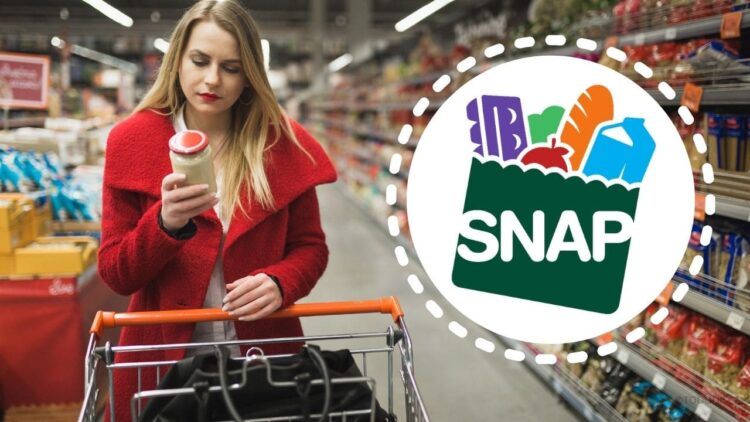Millions of United States families rely on SNAP Food Stamps to meet their basic food needs. With December approaching, many people are keeping an eye on the payment schedule to ensure they can organize their budget during the holiday season. However, the first deposits of the month are not made uniformly across the country.
SNAP, which seeks to support low-income families, is distributed on different dates depending on the state and jurisdiction’s issuance system. This creates some confusion among beneficiaries, especially when payments do not arrive in the first few weeks of the month, as they do in some places. It is important to understand these variations to better plan finances.
Although not all states make payments in the first few days of December, the program ensures that all beneficiaries will get their funds. To see this more clearly, it is important to understand how this process works, highlighting the reasons why some states delay payments and how this affects citizens who rely on this essential benefit.
SNAP Food Stamps Payments in December
SNAP Food Stamps payments in December follow a specific schedule that varies from state to state. This program, administered at the federal level but managed by state governments, sets issuance dates based on factors such as the last digit of the beneficiary’s case number or the first letter of his or her last name.
In some states, deposits begin in the first few days of the month, while in others they extend through the end of December. For example, places like California and Texas often split the payment dates to avoid system saturation, while other states choose to make all deposits in a smaller period.
Thus, the full schedule of SNAP Food Stamps payments in December is as follows:
- Alabama: December 4 to 23
- Alaska: December 1
- Arizona: December 1 to 13December
- Arkansas: December 4 to 13
- California: December 1 to 10
- Colorado: December 1 to 10
- Connecticut: December 1 to 3
- Delaware: December 2 to 23
- District of Columbia: December 1 to 10
- Florida: December 1 to 28
- Georgia: December 5 to 23
- Guam: December 1 to 10
- Hawaii: December 3 to 5
- Idaho: December 1 to 10
- Illinois: December 1 to 10
- Indiana: December 5 to 23
- Iowa: December 1 to 10
- Kansas: December 1 to 10
- Kentucky: December 1 to 19
- Louisiana: December 1 to 23
- Maine: December 10-14
- Maryland: December 4 to 23
- Massachusetts: December 1 to 14
- Michigan: December 3 to 21
- Minnesota: December 4 to 13
- Mississippi: December 4 to 21
- Missouri: December 1 to 22
- Montana: December 2 to 6
- Nebraska: December 1 to 5
- Nevada: December 1 to 10
- New Hampshire: December 5
- New Jersey: December 1 to 5
- New Mexico: December 1 to 20
- New York: December 1 to 9
- North Carolina: December 3 to 21
- North Dakota: December 1
- Ohio: December 2 to 20
- Oklahoma: December 1 to 10
- Oregon: December 1 to 9
- Pennsylvania: December 3 to 14
- Puerto Rico: December 4 to December 22
- Rhode Island: December 1
- South Carolina: December 1 to 10
- South Dakota: December 10
- Tennessee: December 1 to 20
- Texas: December 1 to 28
- Utah: December 5, 11 and 15
- Virgin Islands: December 1
- Vermont: December 1
- Virginia: December 1 to 7
- Washington: December 1 to 20
- West Virginia: December 1 to 9
- Wisconsin: December 1 to 15
- Wyoming: December 1 to 4
While the differences in dates may seem inconvenient, the system ensures that all beneficiaries will get their funds in the appropriate month. To ensure that payment arrives smoothly, it is essential to check your state’s specific calendar and take into account possible holidays that could delay deposits.
Why don’t all states pay SNAP Food Stamps in the first week?
The fact that not all states issue SNAP Food Stamps payments in the first week of December is due to administrative decisions in each jurisdiction. Although the program is funded by the federal government, each state has autonomy to organize its distribution schedules, prioritizing efficiency and avoiding crashes in the banking or electronic transfer systems.
These staggered calendars also seek to benefit local businesses, preventing all beneficiaries from using their help at the same time. This allows for greater availability of products in supermarkets and reduces pressure on supply chains.
Despite these differences, all citizens who qualify for the program will get their payment before the end of the month. If a state does not make deposits in the first week, it does not mean that the funds are not guaranteed. Recipients should stay informed about exact issuance dates through official channels, such as local SNAP offices or state websites.
Understanding how and when these payments are issued can make a big difference in family budget planning. Although issuance dates vary, the goal of the program remains the same: to ensure that every beneficiary has uninterrupted access to basic food staples.








